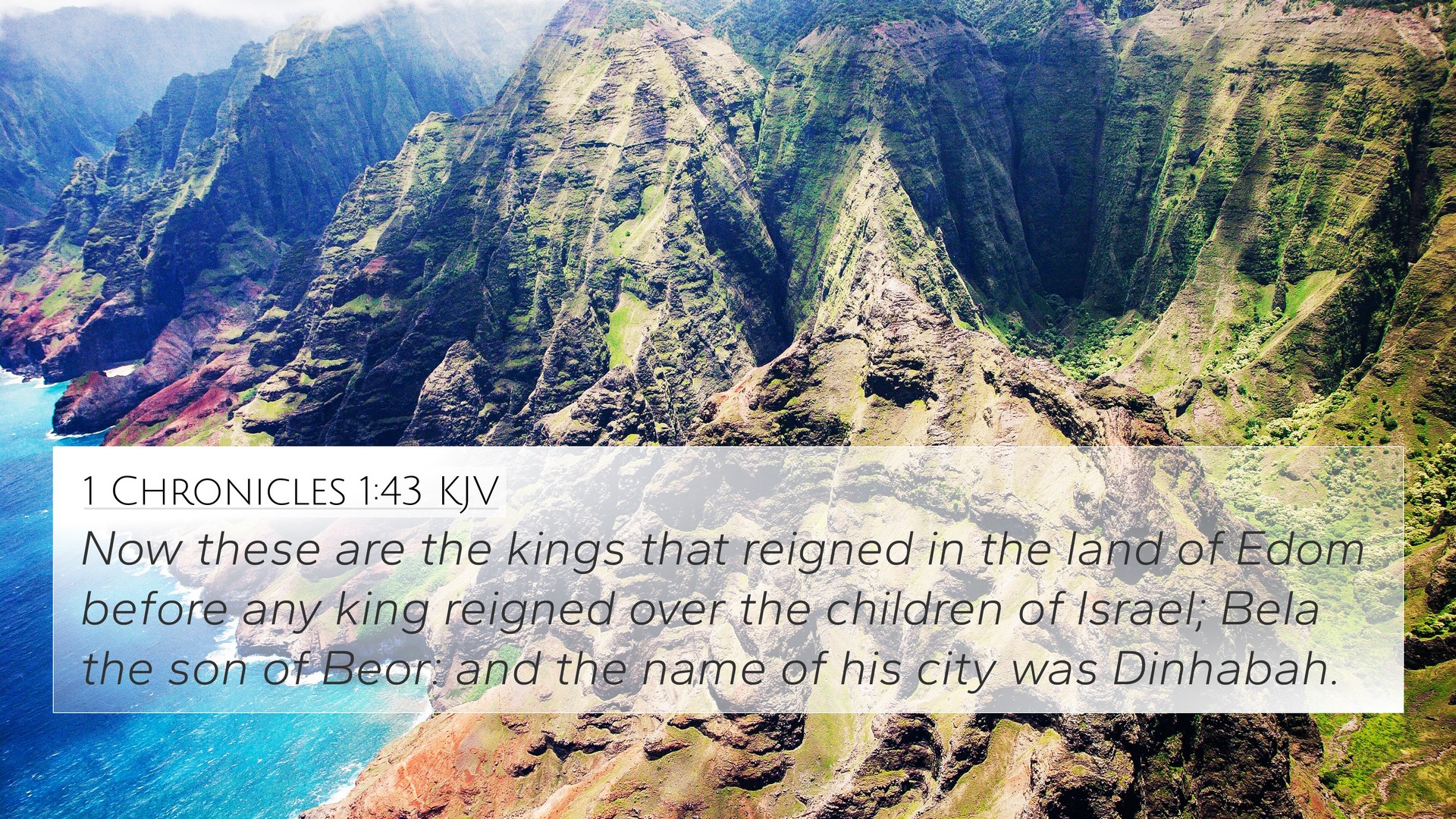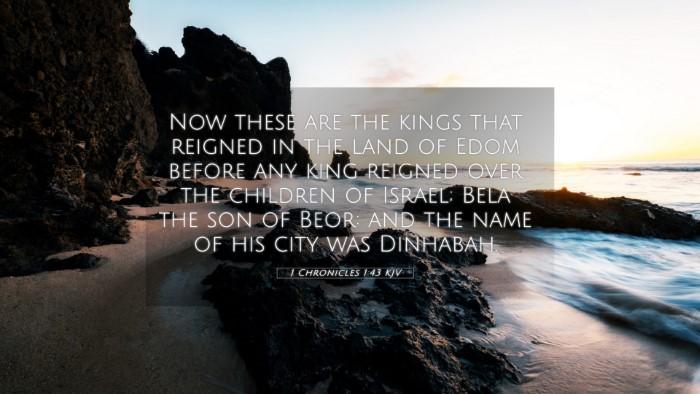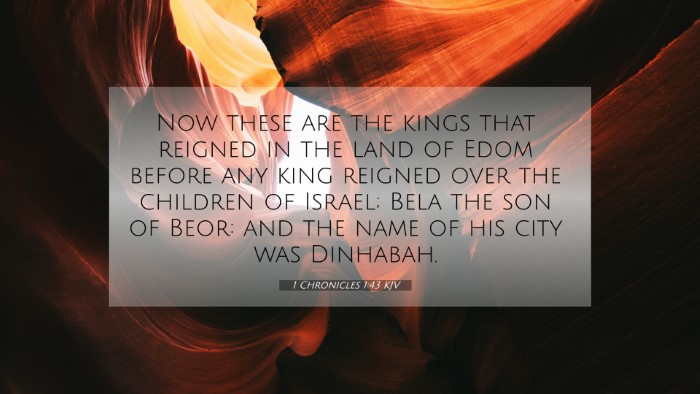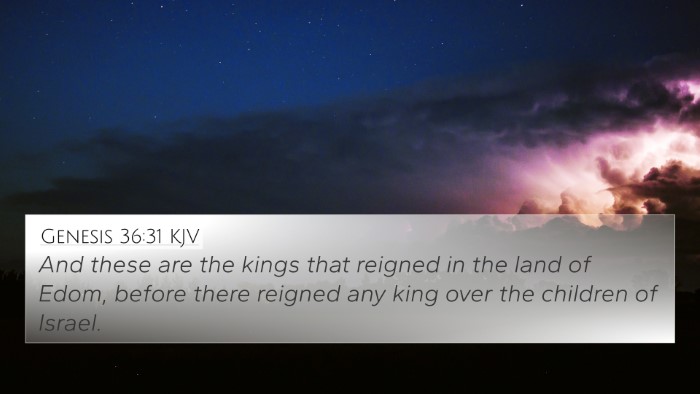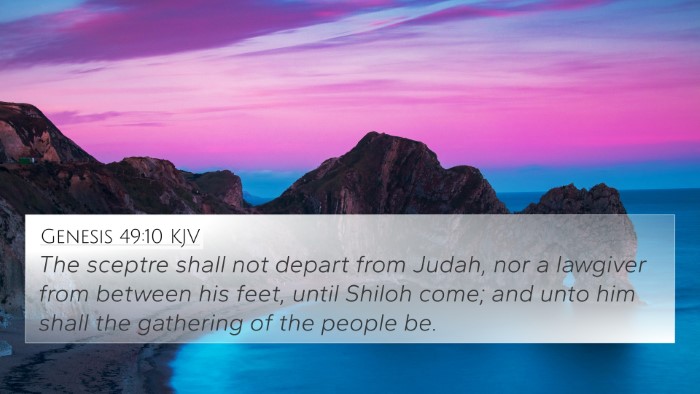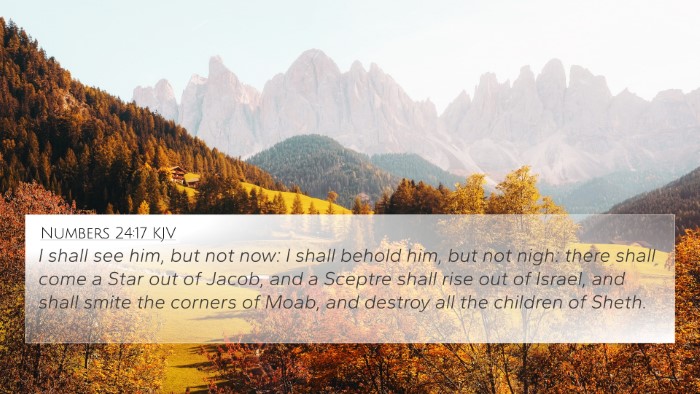Understanding 1 Chronicles 1:43
Verse: "Now these are the kings that reigned in the land of Edom before there reigned any king over the children of Israel." (1 Chronicles 1:43, KJV)
Summary of Meaning
The verse serves a significant role in understanding the historical context of Edom and its kings prior to the establishment of kings in Israel. This highlights the timeline of governance and sovereignty in the regions surrounding Israel. The mention of Edom kings lays the groundwork for grasping Israel's monarchy and their place in the broader narrative of the biblical account.
Commentary Insights
-
Matthew Henry:
Henry emphasizes the importance of the chronological presentation of Edom's kings. He interprets this as a reminder of God’s providence and sovereignty, showing that God was in control of all nations. The reference to Edom’s previous kings suggests a differentiation between the chosen people of Israel and their neighboring nations.
-
Albert Barnes:
Barnes highlights the significance of the Edomite kings as a historical marker, providing insight into the governance of this neighboring nation. He notes that Edom's independence allowed it to thrive in contrast with the Israelites who were in servitude before they established their own monarchy. This detail shows both contrast and divine order in the unfolding of events in biblical history.
-
Adam Clarke:
Clarke suggests that this verse connects to the overarching narrative of Israel's identity formation. By acknowledging the kings of Edom, it serves as a timeline for the Israelite identity, showing how God eventually led them to prominence. Clarke positions this as part of God’s covenantal plan, grounding Israel’s history amidst surrounding nations.
Cross-References
Understanding 1 Chronicles 1:43 is enriched by connecting it with the following scripture references:
- Genesis 36:31: References the kings of Edom and their significance before Israel’s monarchy.
- 1 Samuel 8:5: Discusses the demand for a king in Israel, establishing a parallel timeline with Edom’s governance.
- Deuteronomy 2:12: Mentions the relationship and historical context between Israel and Edom.
- Numbers 20:14: Indicates the tensions and relationships between Israel and Edom around the time of the Exodus.
- Amos 1:11: God’s judgment against Edom, illustrating the future implications of Edom's rulership.
- Obadiah 1:1: A prophetic reflection on the house of Esau (the Edomites), showing their longstanding conflict with Israel.
- 2 Samuel 8:14: Discusses David’s reign and territorial conquests, indirectly relating to earlier kings of Edom.
Thematic Connections
The interplay of governance between Israel and Edom reflects broader biblical themes:
- The Sovereignty of God: The establishment of kings in Edom demonstrates God's overarching control over nations.
- Identity and Heritage: Israel’s history is shaped by its neighbors, creating an intricate web of identity tied to geographical and political shifts.
- Conflict and Resolution: The history of Edom and Israel reveals the complexities of their relationships leading to both conflict and eventual covenantal promises.
Cross-Referencing Tools and Methods
To deepen the understanding of cross-references like those associated with 1 Chronicles 1:43, consider utilizing:
- Bible Concordance: A useful tool for locating related verses based on keywords.
- Cross-Reference Bible Study: Methods that include systematic comparisons of themes across scripture.
- Bible Reference Resources: Guides that outline connections between verses, especially in historical contexts.
- Comprehensive Bible Cross-Reference Materials: Books and online tools tailored for extensive study and analysis.
Conclusion
The examination of 1 Chronicles 1:43 invites reflections on the historical narrative of God’s people and their relationship with neighboring nations like Edom. This verse provides a foundation for exploring Israel's establishment as a significant nation amidst a backdrop of other kingdoms, which is essential for understanding the holistic biblical narrative. Furthermore, engaging with the provided cross-references enhances our comprehension of the diverse ways the scriptures relate to each other, fostering a deeper faith and insight.
